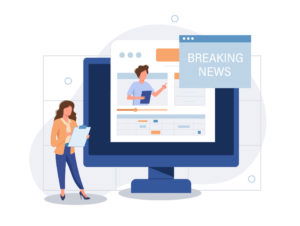Using Fastcase for Your Legal Research
BY Virginia Mayo

LISTEN
Fastcase’s popularity is on the rise. Is it right for your firm?
For years, Westlaw and LexisNexis were the two leading online legal research tools. However, a 2017 survey of Clio users indicates the emergence of a third legal research tool. Of the respondents, 20.58 percent said Westlaw was their research tool of choice, 20.35 percent reported that Fastcase was their top choice, and 20.21 percent chose LexisNexis. Google Scholar received 13.6 percent, and Casemaker had 10.22 percent. The three top legal services were within eight votes of each other among the 2,162 people who participated in the survey – Westlaw with 445, Fastcase with 440 and Lexis Nexis with 437.
Fastcase may have an inside track with Clio users. The two companies have an exclusive integration agreement that allows Fastcase users to track their legal research time and record documents with the Clio dashboard in Fastcase.
Nonetheless, Fastcase has made remarkable progress in the legal market and is a free service offered by many state bar associations.
Review of Fastcase
Fastcase provides access to court opinions from all 50 states and the District of Columbia, the U.S. Supreme Court, federal Courts of Appeal, U.S. District Courts and U.S. Bankruptcy Courts. You also get statutes, regulations, court rules and constitutions from the 50 states. You can get most of the same information from Google Scholar or the Public Library of Law for free, but you do not get the search tools and other features offered by Fastcase.
• Locating cases
You can locate cases on an issue in Fastcase by using keywords and Boolean searches. You can search for code sections cited within cases. You can sort your results by date, relevance, authority or alphabetically. Your results show the name of the case, its relevance ranking, how often it has been cited and a brief excerpt. You can filter your search results by document type, jurisdiction or level of court. Also, you can save your search for later reference.
You can easily locate a case the other party cited that you want to read or print. You type in the names of the parties or the style of the case, or the citation of the case. You can save, print or email the case.
• Checking authority
Fastcase lets you view a list of cases that cite the case you are viewing. An Authority Check Report gives you a list of subsequent cases that cited the case you are viewing. A Bad Law Bot alerts you to a case with a negative citation. The service is similar to Shepardizing a case to make sure the case you cite is still good law.
• Browsing documents
Fastcase displays a list of cases matching your search. You can hover over a case to see the first paragraph of the case. Fastcase highlights your search terms, so you can jump to the relevant part of the case. You can browse statutes and regulations using an outline.
• Printing
To print a document from Fastcase, you click on the print icon and select the format you prefer, for example, PDF or Microsoft Word. You download the document to your computer or mobile device. You can choose whether to have one or two columns and whether to have your search terms highlighted. You can add multiple documents to your print queue so that you can print them at the end of your research session.
• Research tips
Fastcase provides a series of online webinars to make your research more efficient. The courses qualify for continuing legal education credit. You can consult a short reference guide for assistance, or you can take a quick tutorial in Fastcase. You can click on the Fastcase chatbot if you need immediate help.
• Mobile app
The Fastcase app can be downloaded on iPhones and Android devices. The app allows lawyers to perform legal research from anywhere and on any device.
Disadvantages of Fastcase
Westlaw and LexisNexis include a case summary and headnotes with court decisions. WestlawNext classifies the headnotes in the key number system, while Lexis Advance uses the Lexis Topics system. Fastcase does not offer proprietary secondary sources. LexisNexis, Thomson Reuters (WestlawNext) and Bloomberg BNA publish treatises and form books. Some courts require Lexis or Westlaw citations when a lawyer references an unpublished court opinion in briefs or other legal documents.
Public records search
In March 2019, Fastcase announced that it had partnered with TransUnion to give subscribers access to public records information and analytics for individuals and businesses. The service is offered through TransUnion's TLOxp platform. Fastcase subscribers get access to information such as addresses, phone numbers, places of employment, professional licenses, criminal records, bankruptcies, liens and assets. Lawyers can use the information to perform due diligence, locate witnesses, track assets and perform other investigations.
The integration is available through Fastcase 7. When a Fastcase subscriber performs a search that involves an individual or company, Fastcase offers the subscriber the option of extending the search to TransUnion's public records. To get access to the public records information, the subscriber needs a separate subscription to TLOxp.
Expert witness profiles
In April 2019, Fastcase announced partnerships with JurisPro and Courtroom Insight, companies that provide expert witness profiles and information. The move allows Fastcase to provide subscribers access to over 100,000 expert witness profiles when using the Fastcase 7 platform.
Lawyers performing searches on Fastcase will be able to view JurisPro profiles at no extra cost. To see full Courtroom Insight profiles, a subscriber must pay a separate monthly subscription fee. JurisPro's expert witness information includes the expert's background, contact information, areas of expertise and testimonial background. Information on Courtroom Insight includes a full profile of the expert, the number of court challenges to the expert's qualifications, the name of each case, the type of case and an analysis of the challenge. A lawyer may discover that a court has specifically accepted or rejected an expert's testimony and why.
Many lawyers belong to state or local bar associations that offer Fastcase as a part of the membership. Does what Fastcase offers satisfy a lawyer's research needs? A law firm can compare what Fastcase offers to what other companies provide and make an informed decision.
LATEST STORIES



